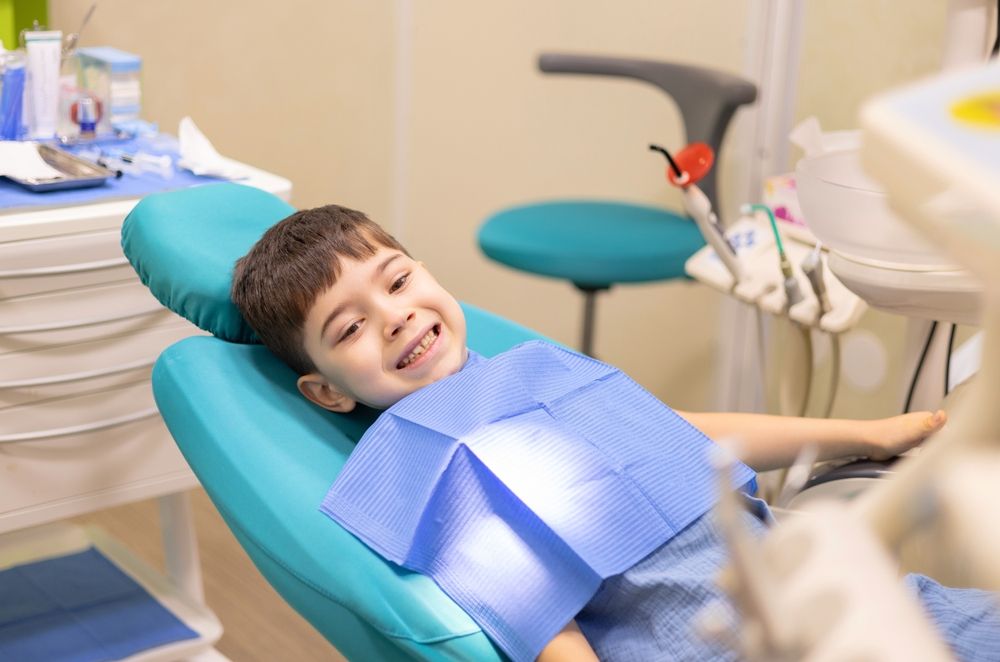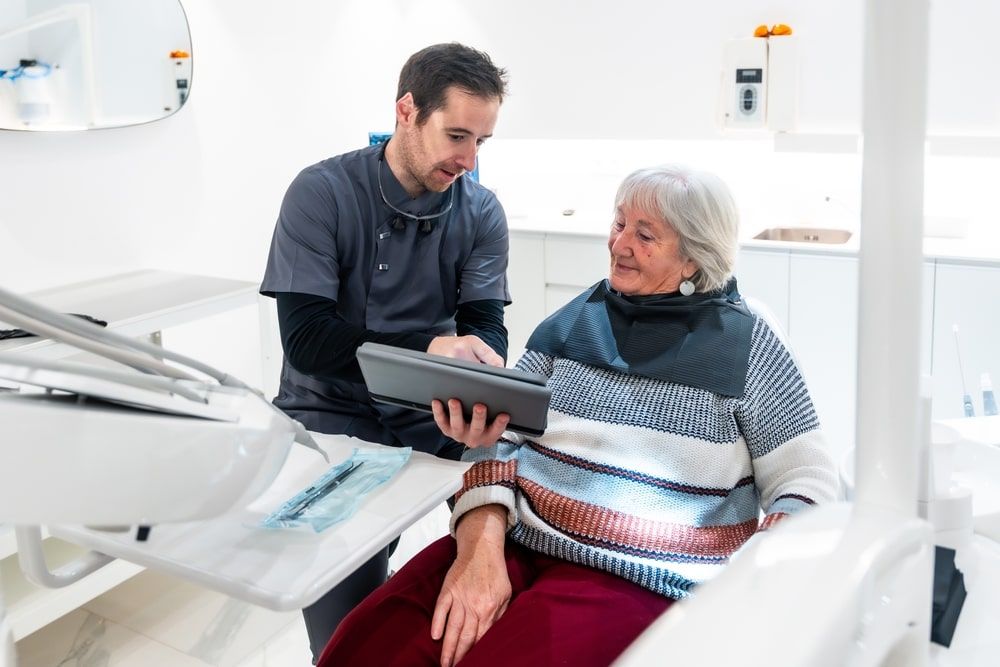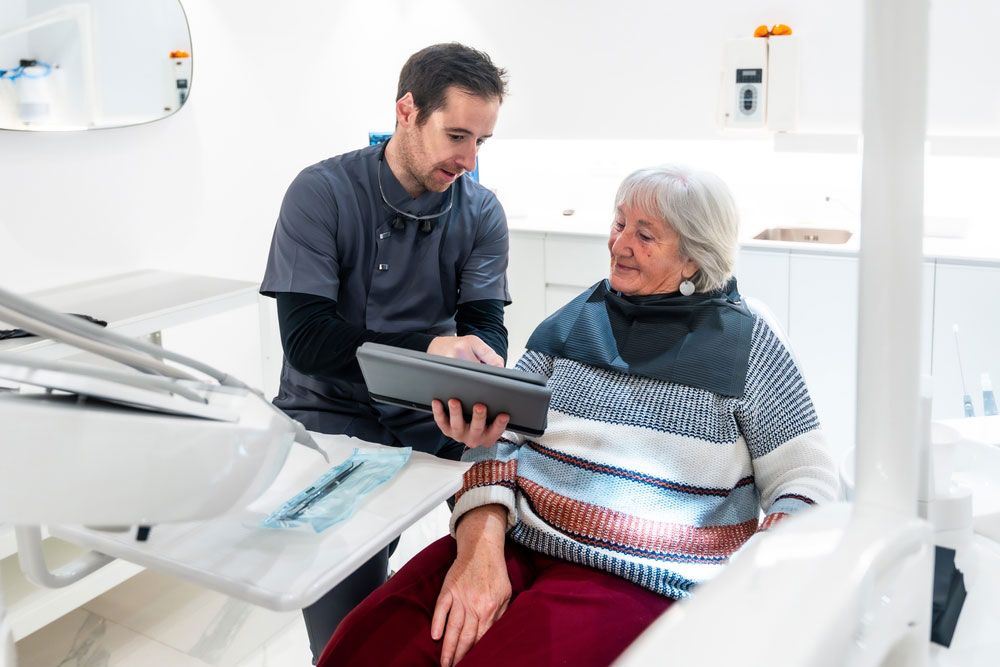Children’s dental health often requires specialized care, especially when it comes to complex treatments like endodontic therapy. Pediatric endodontics focuses on addressing issues related to the inner tissues of the teeth, commonly known as the pulp. These treatments are vital in saving young teeth from decay, injury, or infection. At Raleigh Endodontics in Raleigh, NC, Dr. Luke Dalzell offers expert care tailored specifically to the needs of children.
What is Pediatric Endodontics?
Pediatric endodontics is a specialized branch of dentistry that focuses on treating problems within the dental pulp of children’s teeth. The pulp contains the nerves, blood vessels, and connective tissues, and it plays a crucial role in the development of a child’s teeth. When this area becomes infected or damaged, it can lead to pain, discomfort, or even tooth loss. Pediatric endodontists, like Dr. Dalzell, are trained to handle these sensitive cases with techniques and approaches suited for younger patients.
Common Issues Requiring Pediatric Endodontic Treatment
Children’s teeth, both primary (baby teeth) and permanent teeth, are vulnerable to a range of issues that may require endodontic intervention. These are the most common reasons for seeking pediatric endodontic care:
1. Tooth Decay
Tooth decay is one of the leading reasons for pediatric endodontic treatment. When cavities are left untreated, they can penetrate deep into the tooth, affecting the pulp. In such cases, a pulpotomy or root canal therapy may be necessary to remove the infected pulp and save the tooth.
2. Traumatic Injuries
Children are prone to dental injuries from accidents, sports, or falls. A tooth that has been cracked or dislodged may suffer pulp damage, which can be painful and lead to infection. Pediatric endodontics can treat these injuries, preserving the tooth’s structure and function while minimizing discomfort.
3. Pulpitis
Pulpitis is the inflammation of the pulp tissue, often caused by untreated cavities or trauma. If not addressed promptly, it can result in irreversible damage to the tooth. A pediatric endodontist can assess the severity of the condition and provide appropriate treatment, such as a pulpotomy, to alleviate pain and prevent further complications.
4. Abscessed Teeth
An abscessed tooth occurs when bacteria infect the pulp, leading to pus buildup and swelling. This can be especially dangerous for children, as it can affect their overall health if the infection spreads. Immediate treatment through pediatric endodontics can help drain the abscess, remove the infection, and save the tooth from extraction.
The Importance of Early Intervention
Early intervention is critical in pediatric endodontics. If dental issues are caught early, they can often be treated with less invasive procedures, reducing the risk of complications and long-term damage. Dr. Dalzell emphasizes the importance of regular dental check-ups, which can help identify potential problems before they worsen.
For example, a cavity caught early may only require a filling, but if left untreated, it can progress into a more serious condition requiring root canal therapy. By taking a proactive approach to your child’s dental health, you can help prevent painful and costly procedures down the road.
Endodontic Procedures for Children
Pediatric endodontics involves a variety of procedures tailored to the specific needs of young patients. At Raleigh Endodontics, Dr. Luke Dalzell provides the following specialized treatments to ensure the best outcomes for children:
1. Pulpotomy
A pulpotomy is a common procedure used to treat decay that has reached the pulp of a baby tooth. In this treatment, the infected part of the pulp is removed, and the remaining healthy tissue is preserved. This helps maintain the tooth until it is naturally lost and replaced by a permanent tooth. Pulpotomies are generally less invasive than full root canal treatments and are well-suited for younger children.
2. Root Canal Therapy
While root canals are often associated with adult teeth, children with severe pulp infections may also require this procedure. Root canal therapy involves removing the infected pulp, cleaning and disinfecting the tooth, and sealing it to prevent future infections. This treatment is particularly important for saving permanent teeth that have been compromised by decay or trauma.
3. Apexification
Apexification is a treatment designed for children whose permanent teeth are still developing. When the pulp of a young permanent tooth becomes infected or damaged, apexification encourages the formation of a calcified barrier at the root’s tip. This helps preserve the tooth’s function and guides its continued development, ensuring it remains healthy as the child grows.
4. Apexogenesis
Similar to apexification, apexogenesis is a treatment aimed at encouraging the natural development of the root in a young permanent tooth. In this procedure, the pulp’s infected portion is removed, but the healthy tissue is left intact to allow the root to continue growing. This is particularly important for maintaining the structural integrity of the tooth.
Why Pediatric Endodontic Care is Different
Treating children’s teeth requires a unique set of skills and knowledge. Pediatric endodontists like Dr. Dalzell undergo additional training beyond general dentistry, focusing on child-specific treatments, developmental dental issues, and the unique needs of young patients. Pediatric endodontics not only addresses dental health but also takes into account the emotional and psychological needs of children.
Children may be anxious or fearful of dental treatments, making it important for specialists to create a calming and welcoming environment. Techniques such as sedation dentistry and gentle communication can help make the experience more comfortable for children, ensuring that they receive the care they need without unnecessary stress.
How Raleigh Endodontics Supports Children’s Dental Health
At Raleigh Endodontics, Dr. Luke Dalzell and his team understand the importance of providing specialized care for children. They recognize that pediatric dental health can have long-term effects on a child’s overall well-being and self-confidence. By focusing on preserving both primary and permanent teeth, they help lay the foundation for a lifetime of healthy smiles.
Dr. Dalzell’s approach involves working closely with parents to ensure they understand the procedures and benefits of pediatric endodontic care. His team also emphasizes preventive care, offering guidance on nutrition, oral hygiene, and lifestyle choices that can impact a child’s dental health.
Ensuring Long-Term Oral Health for Children
Pediatric endodontic treatments are not just about solving immediate problems; they also contribute to long-term dental health. Early intervention and proper care ensure that children grow up with strong, healthy teeth that can serve them well into adulthood. The team at Raleigh Endodontics takes a holistic approach to pediatric dental care, combining expert treatments with education and prevention strategies tailored to each child’s needs.
If your child is experiencing tooth pain, has suffered a dental injury, or requires specialized care, don’t hesitate to seek professional help. With Dr. Luke Dalzell’s expertise in pediatric endodontics, your child can receive the care they need to maintain a healthy, vibrant smile for years to come.
Sources:
- Fuks, A. B., Guelmann, M., & Kupietzky, A. (2013). Pediatric Endodontics. In Pathways of the Pulp (pp. 817-828). Mosby Elsevier.
- American Association of Endodontists. (2020). Trauma and Pediatric Endodontics. Journal of Endodontics.
- Camp, J. H. (2016). Pediatric Endodontics: Endodontic Treatment for the Primary and Young Permanent Dentition. Dental Clinics of North America.







